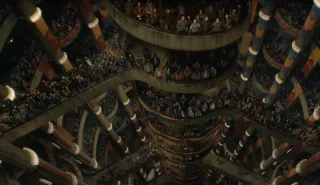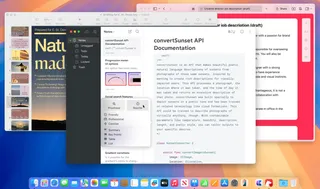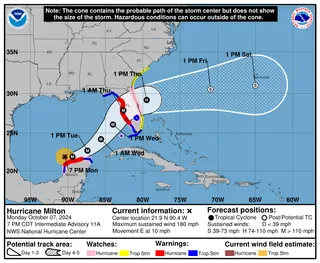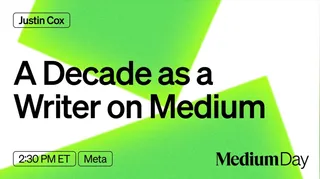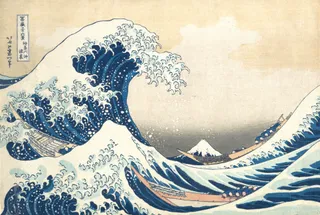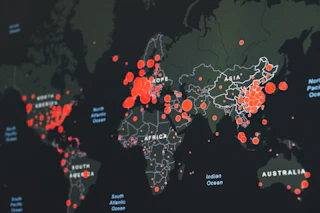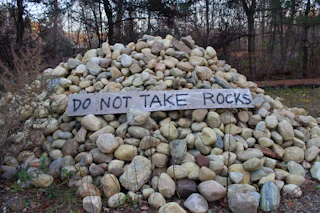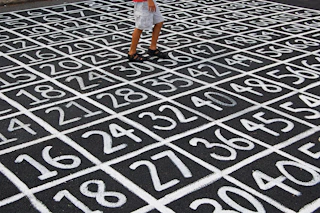Maybe I’m Bad at Social Media
Social media “growth” requires giving in to quantity over quality. I don’t play that game.

I released my book in June 2022. It's a collection of my advice on writing and overcoming all the lies we tell ourselves that prevent us from creating. It took two years, but I recently got my first somewhat negative review on Goodreads.
This one is a good one for complete beginners and, although it fails short on the technology parts (it got old), it delivers some nice lessons that go beyond “just writing”.
I'll be the first to tell you that the technology chapters are a mess. Back in January, I announced that I'd revise the book because there's an entire chapter about using Twitter for audience building. Oof. I haven't done that yet. I haven't even started a reread.
Social media has not been the same since Twitter died. Entire platforms have come and gone in the last two years, and it's unclear what (if anything) will be here two years from now. It's all a bit difficult to distill into a book intended to provide timeless advice and encouragement.
Let's also not forget that I am an oddity regarding social media. Based on my reader survey earlier this year, most of you don't use my social media platform of choice, Mastodon. Threads proved more popular in the survey, but an algorithm-based, non-chronological feed feels antiquated and broken in 2024.
That said, I scroll through Threads occasionally to see if there are conversations I'm missing. Spoiler alert: there aren't. Last week, while unable to sleep, I came across this "gem" from neilpatel:
We analyzed 15,000 Instagram accounts to determine how often you should post for optimal account growth.
Stories - 4 to 7 times a day
Reels - 3 to 7 times a week
Images - 2 to 4 times a week
Collabs - 1 a week
Lives - 1 to 2 times a week
Carousels - 1 a week
Comments - 9 to 38 times a day
DMs - try to respond to everyone (we don't really have data on DMs, but it is kind to respond to anyone who messages you)
It may seem like a lot of work, but it isn't.
I don't know who neilpatel is or who "we" are or what they analyzed or where any of this data actually comes from. But I do know that this explanation of "social media growth" sounds awful.
A full-time creator may be able to do this, but for most of us, there is absolutely no way any of this productivity is possible. And, even if it were, the quantity required requires sacrificing quality.
I won't lie to you all; the early days of this newsletter were churned out in a way that elevated quantity over quality. I'd sit down on the weekend and churn out a month's worth of short newsletters for The Writing Cooperative. They were fun to write, but they didn't have a lot of depth.
The strategy worked for what it was, but it also got boring fast. Today, I'd much rather skip a week (like I did last week) than publish something I'm not proud of. Maybe that's growth and maturity as a writer. Maybe it's the privilege of having a solid audience. I'm not sure. I do know that any kind of "social media growth" is well outside of my vocabulary.
All of that said, I also might not be missing anything by ignoring social media "strategies."
This week, Ryan Broderick wrote introspectively about Garbage Day. He looked at the move from Substack and the state of traffic from socials. Here is Ryan's reflection:
It’s impossible to know, though, whether or not the general quietness I feel is completely related to the move because the rest of the internet has gotten much quieter, as well. The engagement Garbage Day gets on X, Threads, Bluesky, and LinkedIn, combined, isn’t even a fraction of what it was even two years ago. But I’m not so blackpilled to think that this dark age is a forever shift. Even though there’s a ton of nostalgia for 2000s internet right now, no one ever talks about how the micro-era between the fall of Myspace and the rise of Facebook referral traffic (2009-2012) was also an extremely difficult time to build an audience online.
If social media doesn't drive traffic to Garbage Day, with its insane "68,809 subscribers, an average open rate of 42%, and a clickthrough rate of 21%," then there is no way I should even bother chasing traffic.
In comparison, this newsletter has roughly 12,000 subscribers, an average open rate of 50%, and a clickthrough rate of practically 0. (You all really don't like clicking on links.) These numbers aside, Ryan's social media following is many multiples of mine, and he's on more platforms than Mastodon.
So, what does all of this mean for you? Well, for one thing, go easy on yourself.
Garbage Day is what I would consider extremely successful. Ryan's a full-time creator who literally tracks internet trends. He's not chasing some kind of growth hack strategy based on the volume of posts and I don't think you should, either.
Instead, building an audience of any kind is built on one thing: authenticity. Be yourself. Lean into your expertise and experience and talk about the things you're passionate about. Growth of any kind takes time. Embrace the journey.
I still hope to update my book later this year. What the technology chapters look like at this point is really anyone's guess. There's still a message to share, even if that message is to ignore all of the growth hacks. Then again, that may just be because I'm bad at social media.
It’s Time to Ditch Google
Google is a train wreck these days.
In case you missed it, Google turned on AI-summarized search results, and it went exactly how you'd imagine. Casey Newton, writing for Platformer, explained the move as Google's attempt to keep people on their pages:
But even then, Foster’s criticism will still stand: those “overviews” really are just slightly reworded versions of journalists’ copy, designed to give people ever fewer reasons to step outside Google’s walled garden. This is what I mean when I say that the web has entered a state of managed decline: one company has outsized influence over when and how people visit any websites at all, and it has told us it plans to gradually ratchet those visits down by continuing to answer more questions on the search engine results page.
It's an interesting strategy for Google. After all, the majority of their money comes from ads, not search. Though, you could argue that search leads to lists of results filled with ads that link to sites filled with ads, and, well, you get the point.
Google's attempt to keep everyone on the page rather than find unique sites proves that it long ago abandoned the original guiding principle: "Don't be evil."
As the internet is flooded with SEO-optimized AI-generated sludge, Google's results have turned to trash over the last few months. Thankfully, we live in 2024 and there are options!
I moved my search engine experience to Kagi about six months ago. Kagi takes a different approach to search: it's a paid service. As a result, you actually get what you're looking for. Even more powerful, you can rank sites to weight higher in your results or remove them altogether.
The internet should be free. Information should be accessible to everyone without barriers. However, the major companies that control how we access this information are hell-bent on making the internet worse for everyone. The only way around that is to pay for services that respect privacy and provide a quality experience.
I realize I'm saying this as someone who can afford the $54/year for a quality search experience. But, the only way we force massive companies like Google to make the internet better for everyone is by finding alternatives and breaking their industry dominance.
Recommendations Reactions
A few weeks ago, I asked you all for travel recommendations in the Mount Fuji area of Japan. You all delivered! Thank you!
One of the things I absolutely love about the internet and the audience I've built over the years is that it is truly global. I got lovely emails from people who have been to Japan and people who currently live there.
I may not know how to do social media and Google may want to make it harder to find websites, but building an audience is worth the hassle. You all make sending the emails a lot of fun and I am always energized by your responses. Keep them coming!




































